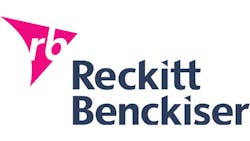Reckitt Benckiser Shareholders Protest CEO's $33.6 Million Pay
Reckitt Benckiser Group Plc (IW 1000/286) shareholders protested the 23.2 million-pound (US$33.6 million) pay package for chief Rakesh Kapoor, the latest sign of growing investor discontent at hefty executive compensation.
Almost 18% of shareholders who voted rejected the company’s remuneration report, Reckitt Benckiser said in a statement Thursday after its annual general meeting in London. The vote was non-binding, with dissent coming from investors including Royal London Asset Management Ltd, which has said that the company’s pay pushes the boundaries of acceptability. The company’s pay policy was rebuffed by 24% of those who voted.
Reckitt Benckiser spokeswoman Patty O’Hayer said the approval rate for the report has increased to 82% from 68% two years ago, so “we’re moving in the right direction.”
The protest is the latest setback for the maker of Dettol disinfectants, which is grappling with a South Korean probe into the sale of now-banned humidifier sanitizers that have been linked to respiratory illnesses and deaths. The Slough, England-based company has also been fined for misleading Australian consumers over claims about its Nurofen painkillers. The events have overshadowed a strong sales performance in recent quarters.
Kapoor’s pay “is the cost of the blood of Korean babies and mothers,” said Yeyong Choi, director of Asian Citizen’s Center for Environment and Health. The CEO should fly to Seoul and apologize for its part in the deaths in Korea, he said outside the meeting. Kapoor apologized at the meeting, saying he very much regretted that the product caused harm and pledged that it would not happen again.
Shareholders also registered smaller protests against the re-election of directors including Kapoor, Chairman Adrian Bellamy and Judy Sprieser, chair of the company’s remuneration committee. Sprieser has served almost nine years on the board, a tenure that exceeds the eight-year recommended limit that European companies such as Unilever place on directors. Bellamy, who also serves on the pay committee, is also approaching nine years as a director.
Incentives Produce Substantial Results
“It is difficult to lead a cost-conscious company when you are paid excessively yourself,” Cliff Weight, a pay consultant at investor advocacy group ShareSoc, said at the meeting. A representative for the Railways Pension Scheme, one of the U.K.’s largest pension programs, told the meeting that the fund has “very strong concerns about board governance” with regards to executive compensation.
Bellamy said the company’s policy to incentivize executives had produced substantial results.
Since Kapoor took over from predecessor Bart Becht, he’s generated a total return of 134%, well above the FTSE 100. Still, investors are losing patience with outsized pay: almost 60% shot down payouts at BP Plc, which awarded CEO Bob Dudley a 20% increase even as the oil company’s shares tumbled.
For the first time since 2012, FTSE 100 companies are losing votes on executive pay practices -- even though so far, there have been no resignations as a result.
By Thomas Buckley
About the Author
Bloomberg
Licensed content from Bloomberg, copyright 2016.
